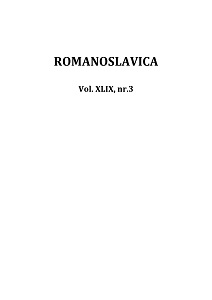Spaţii virtuale în nuvela lui Viktor Pelevin „Princ Gosplana”
Virtual spaces in Viktor Pelevin's short story "Princ Gosplana"
Author(s): Florentina MarinSubject(s): Novel, Russian Literature, Transformation Period (1990 - 2010), Theory of Literature, Sociology of Literature
Published by: Editura Universităţii din Bucureşti
Keywords: postmodernism; science-fiction; real vs. virtual; simulacrum; computer games;
Summary/Abstract: This article analyses one of Viktor Pelevin’s first writings, the novella Princ Gosplana, which represents a great achievement and literary experiment made by the Russian author, for which he received the “Velikoe Kol’tso” prize in 1991. The analyze is focused mainly on presenting the collision between reality and the virtual spaces generated by computer technologies, an endless game of simulacra which did not originate in the real world, but were completely invented and introduced as a substitute for reality itself. This type of simulacrum brought forward by Pelevin opposites Baudrillard’s notion, in whose vision the simulacra represent but o copy of a real event or fact, a collection of illusions, masking the absence of the real object. Influenced by recent developments in high tech, the people in modern societies have changed their ways of understanding and relating to other people and natural phenomena. Due to the Internet and the informational explosion, reality has lost its nature in people’s minds and has become more virtual and distant. Pelevin’s novella depicts best this estrangement of the individual from the rest of the world, an aspect which we try to discuss in Baudrillard’s and Cărtărescu’s terms. Last but not least, studying the shift between the real and virtual spaces, the combination of elements belonging to reality and those belonging to computer technologies, we analyze the means by which the Russian writer managed to create a novella belonging to science-fiction literature.
Journal: Romanoslavica
- Issue Year: XLIX/2013
- Issue No: 3
- Page Range: 97-107
- Page Count: 11
- Language: Romanian

